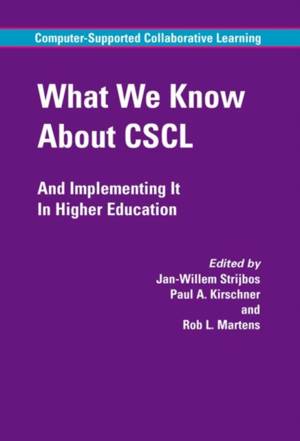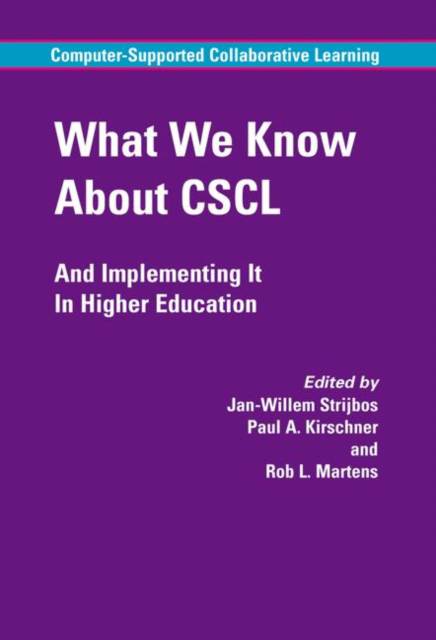
- Afhalen na 1 uur in een winkel met voorraad
- Gratis thuislevering in België vanaf € 30
- Ruim aanbod met 7 miljoen producten
- Afhalen na 1 uur in een winkel met voorraad
- Gratis thuislevering in België vanaf € 30
- Ruim aanbod met 7 miljoen producten
Zoeken
What We Know about Cscl
And Implementing It in Higher Education
€ 167,95
+ 335 punten
Omschrijving
A Dutch policy scientist once said the information and knowledge in the twenty-first century has the shelf life of fresh fish, and learning in this age often means learning where and how to find something and how to relate it to a specific situation instead of knowing everything one needs to know. On top of this, the world has become so highly interconnected that we have come to realise that every decision that we make can have repercussions somewhere else. To touch as many bases as possible, we need to work with knowledgeable others from different fields (multiple agents) and take heed of their points of view (multiple representations). To do this, we make increasing use of computers and computer-mediated communication. If computer-supported collaborative learning (CSCL) is not simply a newly discovered hype in education, what is it and why are we writing a book about it? Dissecting the phrase into its constituent parts, we see that first of all CSCL is about learning, and in the twenty-first century this usually means constructivist learning.
Specificaties
Betrokkenen
- Uitgeverij:
Inhoud
- Aantal bladzijden:
- 262
- Taal:
- Engels
- Reeks:
- Reeksnummer:
- nr. 3
Eigenschappen
- Productcode (EAN):
- 9781402077791
- Verschijningsdatum:
- 31/03/2004
- Uitvoering:
- Hardcover
- Formaat:
- Genaaid
- Afmetingen:
- 159 mm x 241 mm
- Gewicht:
- 576 g

Alleen bij Standaard Boekhandel
+ 335 punten op je klantenkaart van Standaard Boekhandel
Beoordelingen
We publiceren alleen reviews die voldoen aan de voorwaarden voor reviews. Bekijk onze voorwaarden voor reviews.










